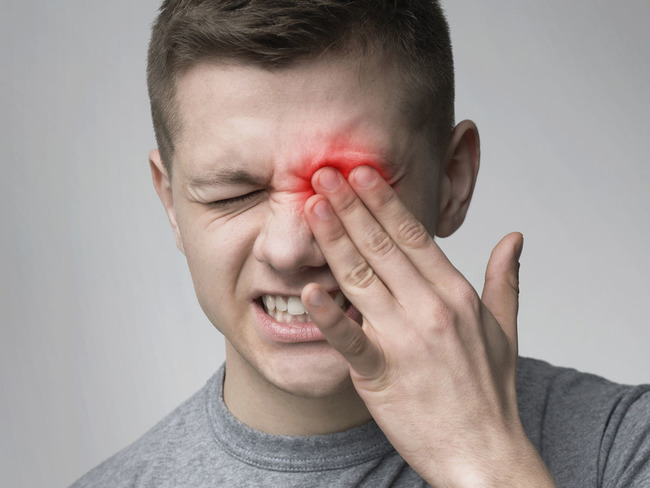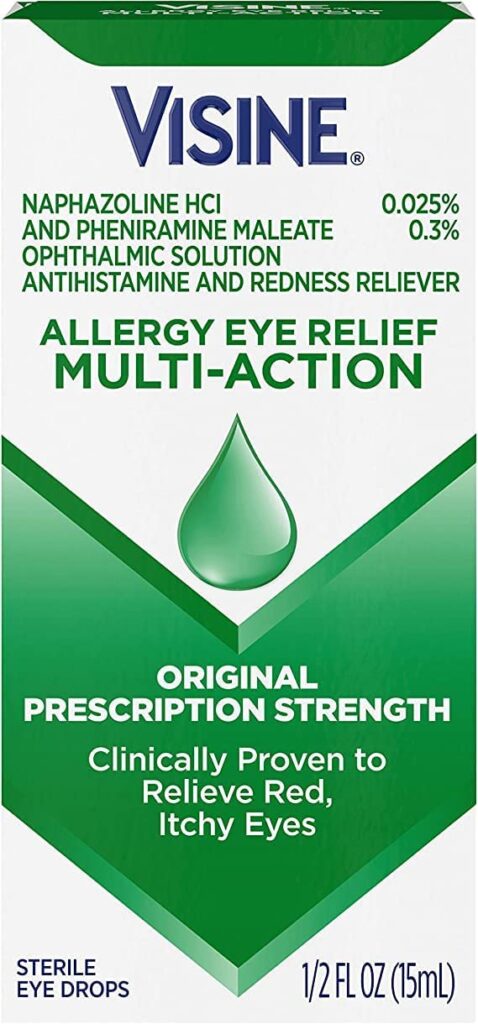It’s the middle of the night and you’re brushing your teeth before bed. In a freak accident, you accidentally got toothpaste in your eyes. What should you do? Can the contamination of toothpaste in your eye make you go blind?
The answer in short is yes. Toothpaste, when in contact with the eye, can lead to a loss of vision if not treated immediately. This is due to the various ingredients in a toothpaste that are formulated to remove stains and strengthen the enamel.
For instance, abrasive ingredients such as calcium carbonate, silica gels, and hydrated aluminium oxides can cause corneal abrasion when it scratches your cornea, the outer clear layer of your eyes. This is even more so for whitening toothpastes which contain a small amount of bleaching agent and a higher percentage of abrasives ingredients. Other ingredients such as flourides, triclosan and surfactants can cause irritation and lead to chemical burn (alkali injury) when present in large amounts and not removed immediately from your eye.
In a 2016 Safety Data Sheet released by Colgate-Palmolive Company (commonly referred to as Colgate), it was concluded that Colgate’s Optic White Toothpaste can cause serious eye damage, and that one should rinse cautiously with water for several minutes when in contact with the eyes. Under Globally Harmonized System (GHS) classification, the toothpaste was rated as Category 1 for “serious eye damage/eye irritation” and Category 2 for “skin corrosion/irritation”.
You may be interested in: Bamboo Salt Toothpaste. What Is It and How It Is Made
What are the Consequences of Getting Toothpaste in Eye?
Getting toothpaste in your eyes is an uncomfortable experience, but it’s usually not a serious medical emergency. Here are some common consequences and steps to take if you accidentally get toothpaste in your eyes:
- Eye Irritation: When the ingredients in the toothpaste come into contact with your eyes, they can cause irritation. You may experience redness, burning, stinging, or tearing.
- Blurry Vision: Toothpaste residue in your eyes can temporarily blur your vision, making it difficult to see clearly.
- Discomfort: The sensation of having foreign material in your eyes can be uncomfortable and distressing.
- Temporary Symptoms: In most cases, the symptoms of getting toothpaste in your eyes are temporary and should subside within a short time.
Failure to remove the toothpaste and treat the eye in time may lead to serious consequences such as a permanent reduced vision and in the worst cases, blindness.
The most notable “toothpaste in my eye” incident happened in 2019 when former professional boxer and Olympic bronze-medal winner former professional boxer Anthony Ogogo accidentally applied flouride toothpaste instead of ointment in his eye. Ogogo, who had just undergone an operation on for his disclocated eye socket, eventually posted his painful mishap on Instagram, prompting a mix of laughters and sympathies from his followers. Fortunately, Ogogo survived the incident with no lasting damage.
What To Do When Toothpaste Gets in Your Eye?
In the event that your eye is in contact with toothpaste, do not rub your eyes as you risk spreading the toothpaste over your cornea, causing more damage. Instead, follow the steps below:
- With your affected eye wide open, wash it with eyewash, saline solutions, or chlorine-free (bottled) water for two to three minutes. Be sure to turn your eyelids inside-out to remove any toothpaste that may be trapped in between.
- With a tissue or wet cloth, carefully wipe off any residual toothpaste on and around your eyes.
- Repeat step 1 and 2 for several more times to ensure that there are no more toothpaste on your affected eye.
- Apply eye drops (artificial tears) on your eyes.
Eye drops such as Visine-A Eye Multi-Action Eye Allergy Relief Drops and Opcon-A Eye Allergy Relief work well to relief the irritated eye and soothe any redness caused by the toothpaste.
If you suffer from a temporarily loss of vision or continue to experience discomfort (e.g bloodshot eyes or a stinging sensation) after rinsing your eyes, immediately visit the nearest emergency room (ER) or an ophthalmologist. Even if you do not feel any discomfort, you are still advised to visit a doctor to rule out any possible infection and obtain the necessary medication.








